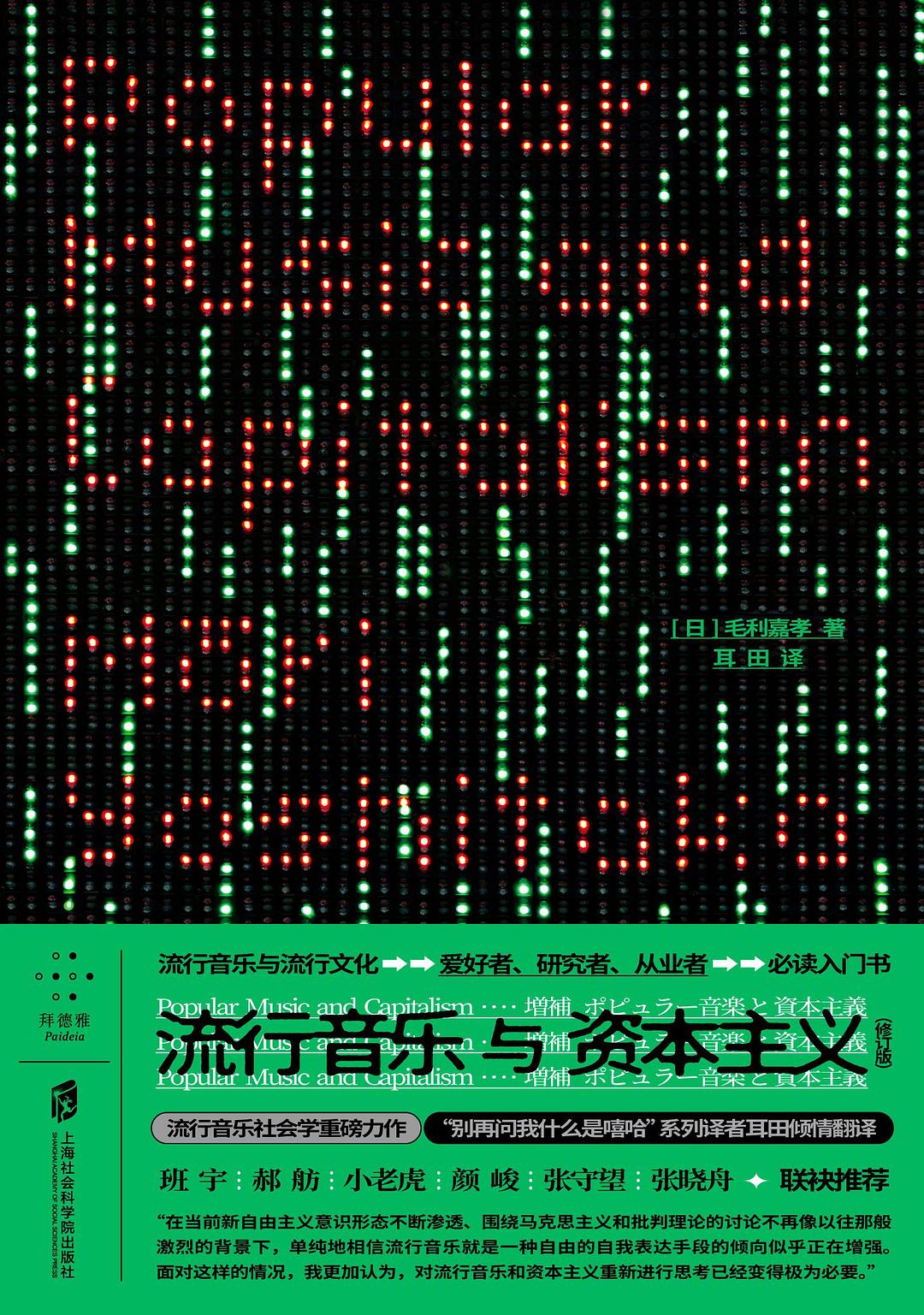WULOLIFE
《流行音乐与资本主义》作者: [日]毛利嘉孝出品方: 拜德雅
《流行音乐与资本主义》作者: [日]毛利嘉孝出品方: 拜德雅
Couldn't load pickup availability
Description
内容简介 · · · · · ·
- 编辑推荐 -
★流行音乐社会学重磅力作,谈论流行音乐方式的一次革命
★流行音乐与流行文化爱好者、研究者、从业者必读入门书
★“别再问我什么是嘻哈”系列译者【耳田】倾情翻译
★班宇+郝舫+小老虎+颜峻+张守望+张晓舟→联袂推荐
★循着音乐研究中经常缺失的政治、经济视角,自“流行音乐纯粹只是音乐”这样的观点中跳脱出来,从全面包裹着流行音乐的整体社会性脉络出发来对其进行重新思考。
★“在当前新自由主义意识形态不断渗透、围绕马克思主义和批判理论的讨论不再像以往那般激烈的背景下,单纯地相信流行音乐就是一种自由的自我表达手段的倾向似乎正在增强。面对这样的情况,我更加认为,思考已经变得极为必要。
★我们在Apple Music、Spotify、QQ音乐、网易云音乐这几大流媒体平台上创建了本书的播放列表,欢迎各位读者朋友输入书名进行查找,边读边听,收获倍增。
✧班宇(作家):
如果说20世纪的流行音乐不过是一道资本形态的文化暗码,那么此时,它也许已经变成一张拥有昭示未来之功效的终极底牌,其无所不在、无孔不入的特质,中止了我们妄图逃逸的旋律线。它不只具备情感、叙事等基本特征,也在缝合、唤醒、重塑、实践着下一个世代的寓言。寓言内部的讽喻与互斥,无一例外地展露着资本主义的战术与辩术。现在,毛利嘉孝将带领我们一同将这张底牌揭开。
✧小老虎(说唱歌手):
“地下”与“主流”,“艺术”和“商业”,“反抗”还是“服务”……如果对音乐感兴趣的你,曾经困惑于这些概念,都请打给自己再一次通过音乐理解世界的机会。
✧颜峻(音乐人·诗人):
感谢说人话的学者,感谢良心翻译,感谢那些把自己活成一首们仍在试着理解它。
✧张守望(音乐人):
一本非常有趣的书,从地下丝绒到御宅偶像团体,从福特主义到独立音乐DiY精神,几乎涵盖了我对独立流行音乐文化的所有好奇。
✧张晓舟(作家):
这本书的新意在于,它结合了日本流行音乐的历史实例,对中国乐迷来说,知识和聆听线索。而本书最令人激赏之处,是运用了众多社会和文化理论而又举重若轻、通俗易懂。如作者在中译本序中提醒的,中国的情也是思考这一特殊性的令人兴奋的过程。
- 内容简介 -
流行音乐与资本主义之间究竟是一种什么样的关系?本书试图以流行音乐为中心,从各种不同的角度出发来思考这个问题。
采取的通常是二重性立场,在拥有对抗性的同时。这一特质在让(自称)激进的政治中心主义者感到焦躁的同时,也让我们看到了实现大众性动员和组织的可能性。这样的二重性本身,也是流行音乐的魅力所在。
不是与资本主义进行对抗的东西,也不是什么独立于资本主义存在的东西,它是从资本主义制造出来的无用的、过剩的、废弃的事物中被创造出来的。它曾便是这种副产物现在逐面,变成了主要产物。而在此之后,流行音乐扮演的角色仍然会不断持续发生变化。
那么,处于这样的时代之中,我们对流行音乐应该进行怎样的思考?当然并不存在现成的答案。不过可以肯定的是,流行音乐无论到什么时候都会一直被人聆个时代,就连拒绝大众性事物的超然态度,都已经被回收进大众性事物之中了。
作者简介 · · · · · ·
- 作者简介 -
毛利嘉孝(Mōri Yoshitaka, 1963士。东京艺术大学大学院国际艺术创造研究科、音乐学部音乐环境创造研究科教授。专业领域为社会学与文化研究。多以包括音乐、当代艺术、媒体等在内的当代文化、都市空间的形成和社会运动为主题进行评论工作。主要著作包括《班克斯:艺术恐怖分子》(バンクシー――アート·テロリスト,光文社新书,2019)、《After Musicking:音乐实践》(アフターミュージッキング ―実践する音楽―,东京艺术大学出版会,2017)、《街头思想:作为转换期的1990年代》(ストリートの思想——転換期としての1990年代,日本放送出版协会,2009)、《DiY入门》(はじめてのDiY,Blues Interactions,2008)等。同时兼任《亚际文化研究》(Inter-Asia Cultural Studies Routledge Journal
- 译者简介 -
耳田,音乐爱好者,译有“别再问我什么是嘻哈”系列。
